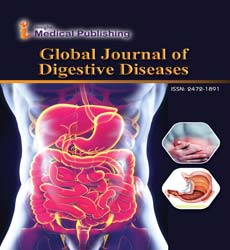Abstract
Gastric carcinogenesis may now be understood by correct identification of cell of origin based on improved tumour classification and physiology
The etiology of gastric cancer like for most other malignancies has been incompletely understood. In the late forties it was recognized that gastric cancer was associated to reduced acid secretion, and in the fifties that gastric cancer seldom was found without accompanying gastritis. With the description of the central role of Helicobacter pylori (Hp) in gastritis [1], it was soon realized that Hp was the major cause of gastric cancer [2]. However, the mechanism for this carcinogenic effect was not found. A major indication of how Hp predisposes to gastric cancer was given when Uemura [3] described that Hp gastritis predisposes to gastric cancer first after having induced oxyntic atrophy. Moreover, it became evident that the carcinogenic process did continue even after Hp eradication by drugs or loss of Hp infection due to anacidity. Thus, in patients with Hp atrophic gastritis cancer can develop decades after loss of Hp [4] clearly indicating that the carcinogenic effect of Hp was not a direct one. Furthermore, autoimmune atrophic gastritis and another condition with anacidity due to an inborn mutation of one of the genes coding for the proton pump (ATP4) (no inflammation) [5] both predispose to cancer. All these conditions predisposing to gastric cancer thus have one thing in common, hypoacidity which necessarily leads to hypergastrinemia. By applying all the presently available methods we have shown that an important proportion of gastric carcinomas is neuroendocrine and more specifically ECL cell derived [6,7]. The ECL cell is the target cell for gastrin. The therapeutic consequences of this knowledge are to perform Hp eradication before development of oxyntic atrophy, and in those with already established oxyntic atrophy as well as in those with autoimmune gastritis or genetic hypoacidity, treat with a gastrin antagonist. Moreover, inducing hypergastrinemia by inhibitors of gastric acid secretion should be reduced. Biography Helge L. Waldum has worked within clinical gastroenterology for more than 40 years. He was the Head of Department of Gastroenterology and Hepatology at the University Hospital of Trondheim for a period of 20 years. At Tromsø University Hospital he defended his first PhD degree in 1980: Studies on secretin and Group I Pepsinogens. He spent one year of research at Hôpital Bichat, Paris, and defended his second degree in 1993: La cellule ECL, une cellule clé dans la mucuese gastric. Gastrin together with its target cell, the ECL cell, have been his main topics focusing on gastric carcinogenesis. Thus, pathology has been of key interest. He has focused on the risk of profound acid inhibition, not only for cancer development, but also related to removal of an important function like killing microorganisms. He has published about 400 papers and very recently a book on the influence of pharmaceutical industry.
Author(s):
Helge L. Waldum
Abstract | Full-Text | PDF
Share this

Google scholar citation report
Citations : 112
Global Journal of Digestive Diseases received 112 citations as per google scholar report
Abstracted/Indexed in
- Google Scholar
- Sherpa Romeo
- WorldCat
- Publons
- Secret Search Engine Labs
Open Access Journals
- Aquaculture & Veterinary Science
- Chemistry & Chemical Sciences
- Clinical Sciences
- Engineering
- General Science
- Genetics & Molecular Biology
- Health Care & Nursing
- Immunology & Microbiology
- Materials Science
- Mathematics & Physics
- Medical Sciences
- Neurology & Psychiatry
- Oncology & Cancer Science
- Pharmaceutical Sciences
